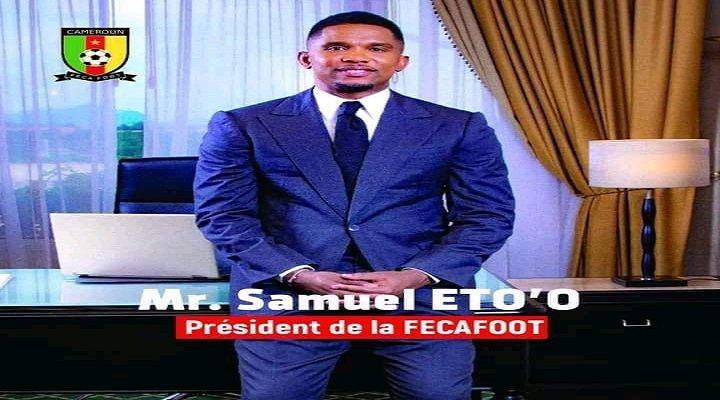Samuel Eto’o in saving Cameroon football: Myth or reality?
When Samuel Eto’o won the election to become president of the Cameroon soccer federation, he jumped from his chair and punched the air like he might have done after scoring a goal at the height of a playing career that put him among the best strikers in the world.
But that celebration in December marked just the start for Eto’o, who has set himself the daunting task of rebuilding a broken domestic soccer structure in his Central African home country.
Cameroon’s national team is one of Africa’s most successful with five continental titles; Eto’o was on the team for two of them. Cameroon seized the world’s attention with a memorable run to the quarterfinals of the 1990 World Cup, led by charismatic striker Roger Milla. Many took notice of African soccer after that and Cameroon has gone on to play at seven World Cups, more than any other African nation.
Yet at home, the last decade has been deeply difficult. The national league has been bedeviled by interference from the government, allegations of corruption and unkept promises from soccer leaders. The league has been regularly disrupted, sponsors have deserted it — taking their money with them — and players have lost faith.
“I can’t list the number of players who have left football to do other jobs because they benefit nothing (from playing),” said Che Malone, a defender with Coton Sport, Cameroon’s national champion.
Malone said many players in Cameroon “play for free or almost free” as some teams aren’t always able to pay their salaries.
Enter Eto’o
It was a surprise when the former Barcelona and Inter Milan striker announced he was standing as a candidate to lead the troubled Cameroon federation. It was a shock when he won.
Eto’o promised to fight corruption, promote women’s soccer, improve stadiums and other infrastructure, get fans back at games and — maybe his key promise — improve the lives of players.
“It’s imperative to look beyond selfish interests in order to revive our local championships,” Eto’o said.
He also stated he had a mission “to rekindle the winning spirit within our national teams” and there were early signs of that when Cameroon impressed and excited on the way to third place at the African Cup of Nations it hosted in January and February.
Turning around the domestic game won’t be nearly so easy, or immediate.
But the 41-year-old Eto’o has made a start, establishing a minimum wage for players in the top two tiers and enforcing rules requiring club owners to show proof they have enough money to pay their players and staff.
He has also negotiated a deal to see the return of league sponsor MTN, a multinational telecommunications company, and has promised to build 10 stadiums in answer to players’ pleas for better settings to ply their trade. Some lower-tier games go ahead on fields that have more bare earth than grass.
Cameroon’s top tier is also back up and running again having kicked off on March 16.
There’s a long road ahead, but Eto’o “has ignited hope in us,” said Frank Abianda, a striker with top-tier club AS Fortuna. “At one moment the future seemed very dark.”
Source: AP




